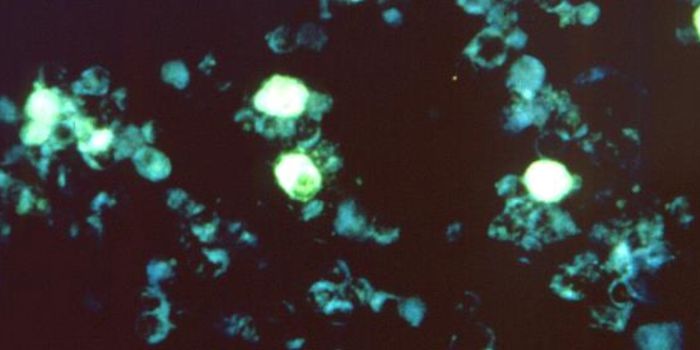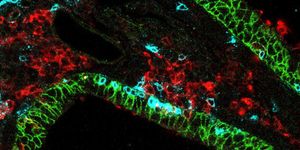A Fungal Compound That Triggers Self-Destruction in Cancer Cells
To describe it in a very basic way, cancer is uncontrolled cell growth. A number of processes regulate various aspects of cell division and proliferation, and cancer can happen when they go awry.
The p53 gene is known to play an important role in controlling cell growth and is known as a tumor-suppressor gene. After cells get old or have finished serving their function, they can enter a natural process of programmed cell death called apoptosis. The relationship between p53 and apoptosis is complicated, and researchers are still learning about it, but it's been suggested that as p53 acquires mutations, apoptosis becomes inhibited and cancer can arise.
Researchers have known that a type of fungus called Ascochyta produces a compound called FE399; the findings were reported in Nature in 2014. When cancer cells growing in culture were exposed to the compound, apoptosis was triggered, killing the tumor cells. The compound may be particularly effective against colorectal cancer, but it has been difficult to extract and purify, which has prevented it from being explored in-depth as a therapeutic.
Reporting in the European Journal of Organic Chemistry, researchers have now found a way to synthesize the compound.
"We wanted to create a lead compound that could treat colon cancer, and we aimed to do this through the total synthesis of FE399," said Professor Isamu Shiina of the Tokyo University of Science. The method, developed by a team that also included Dr. Takayuki Tonoi, uses precursors that are commercially available, making mass production possible.
After identifying the structure of the compound, the team did extensive work to create the molecule correctly. More studies will be needed to determine how safe and effective it is at treating cancer in patients, but now those studies will be possible.
"We hope that this newly produced compound can provide an unprecedented treatment option for patients with colorectal cancer, and thus improve the overall outcomes of the disease and ultimately improve their quality of life," said Professor Shiina.
Sources: AAAS/Eurekalert! via Tokyo University of Science, European Journal of Organic Chemistry








